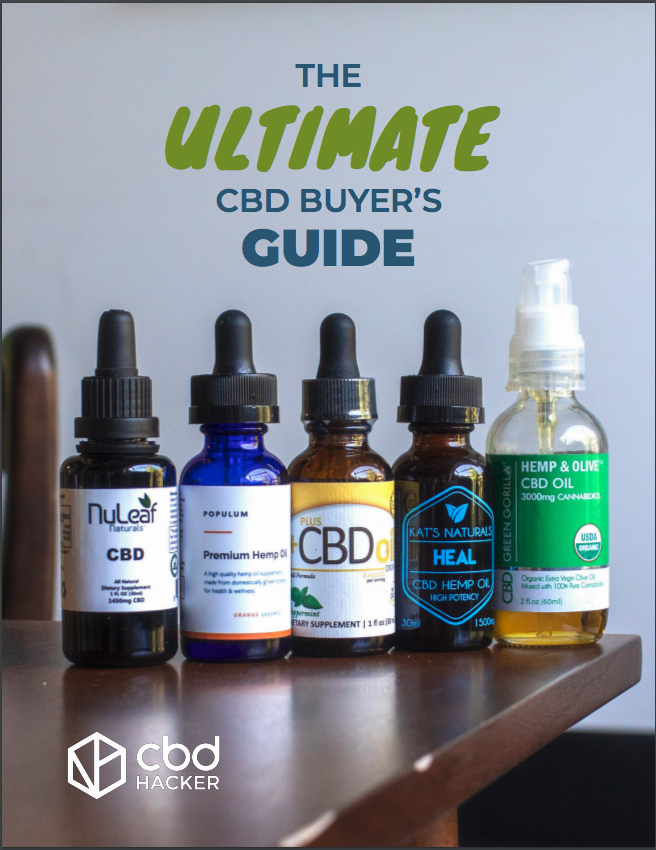On Tuesday, the US Air Force published a warning for service members to avoid use of CBD products. In the official notice, Airmen are reminded that while CBD is federally legal, the use of CBD products may cause them to test positive for THC.
“It’s important for both uniformed and civilian Airmen to understand the risk these products pose to their careers,” said Major Jason Gammons, Air Force Office of The Judge Advocate General spokesperson. “Products containing unregulated levels of THC can cause positive drug tests, resulting in the same disciplinary actions as if members had consumed marijuana.”
The notice cited a study published in 2017, which examined 84 CBD products sold online. According to that study, less than a third of the products accurately labeled the amount of CBD or THC content.
The notice ends with a warning that “products containing THC, even pet products, may qualify as possession of a controlled substance. Possession of a controlled substance is regulated under the Uniform Code of Military Justice, federal law and state laws.”
A recently published study has shed new light on the potential of CBD to help people suffering with chronic pain reduce their dependence on opioids. Published in Postgraduate Medicine, the study looked at 131 patients with chronic pain who had been on opioids for at least one year.
Of the 97 patients who completed the study, 53 percent reduced or eliminated their opioids within 8 weeks of adding CBD-rich hemp extract to their regimens. Significantly, 94 percent of CBD users reported quality of life improvements.
According to the authors of the study, “The results indicate that using the CBD-rich extract enabled our patients to reduce or eliminate opioids with significant improvement in their quality of life indices.” They also noted that none of the three participants who declined to use CBD hemp extract reduced their opioid medication at any interval.
It’s worth noting that this was a single-arm cohort study, not a randomized double-blind placebo-controlled study which would be the gold standard of a clinical trial. (This means that all participants were given CBD capsules, and none were given a placebo.) So, while the findings are promising, researchers need to conduct more clinical trials before they can draw definitive conclusions.
This Week’s Top CBD Deals
NuLeaf Naturals
Discount: 20%
Code: cbdhacker
Pure Hemp Botanicals
Discount: 20%
Code: cbdhacker20
Fab CBD
Discount: 30% – 50%
No code needed!
Charlotte’s Web
Discount: 15%
Code: cbdhacker
Mission Farms
Discount: 20%
Code: cbdhacker
4 Corners Cannabis
Discount: 20%
Code: Hacker20
Hemp farmers and other hemp industry advocates are expressing alarm at the significant role conferred on the US Drug Enforcement Agency by the US Department of Agriculture’s interim federal rules for hemp production.
The new rules, which were released on Oct. 31, require that THC testing of hemp crops be conducted only in laboratories registered with the DEA. That limitation could cause serious bottlenecks in the industry, especially in rural areas.
Others in the industry were concerned with the punitive potential of bringing the DEA back into hemp regulation. Denver attorney Frank Robison counted 42 mentions of the DEA in the rules and only two references to banking, which he says is indicative of the priorities of the regulators:
“It just shows that the priorities within the rule are skewed against the farmer in a way that would prohibit and restrict commerce as opposed to promoting commerce,” Robison told Hemp Industry Daily.
On Tuesday, Idaho Governor Brad Little issued an executive order which will allow interstate transport of hemp through the state. According to a press release, the USDA’s publication of interim rules for hemp production put Idaho law into conflict with federal law with respect to interstate transportation of hemp.
While the 2018 Farm Bill legalized hemp at the federal level, the crop remains illegal in Idaho, creating problems for companies needing to ship hemp across the state. Earlier this year, three truckers were charged with felony drug trafficking for transporting hemp through Idaho. (All three later pleaded guilty to misdemeanors).
The executive order “serves as a stopgap measure until the Idaho Legislature enacts a more permanent solution.” Until that happens, the order should help resolve conflicts between state and federal law.
While South Dakota’s governor, Kristi Noem (R-SD) maintains her oppositional stance on hemp, tribal groups within the state are planning on growing hemp within their own borders. The Flandreau Santee Sioux Tribe and Oglala Sioux Tribe have both filed applications with the US Department of Agriculture to grow industrial hemp.
The tribes are two of eleven tribes that have filed applications with the USDA since the interim rules for hemp production were published at the end of October.
Stay in the know
[caldera_form id=”CF5b05eba6de634″]
New York state prosecutors say they will be dropping all drug possession charges against the owners of Green Angel CBD.
Earlier in November, Ronan Levy was arrested and charged with marijuana possession when police seized the company’s incoming load of hemp from a FedEx delivery truck.
Officers in the NYPD’s 75th Precinct, who were alerted to the hemp shipment by a FedEx driver, quickly posted photos of the alleged drug bust on their social media page. The case gained widespread media attention when it became clear that what they had seized was not marijuana, but fully documented legal hemp.
A new survey analyzing the hemp industry was published this week. The study, which was conducted by Whitney Economics, gives insight into both the growing pains and the immense potential of the hemp industry.
One key finding is that, fully realized, the hemp industry is poised to become the fourth major crop and a foundation to agriculture in the United States.
In fact, the study concludes that even if only a small percentage of the biomass produced by US farmers during the 2019 growing season makes it to market, hemp may already be the third-largest agricultural crop in the United States by revenue, second only to corn and soy.
According to an article in Business Wire, other key findings include:
- 65 percent of farmers who responded to the national survey did not have a buyer for their hemp.
- There is one processor for every four growers and the average acres per processor is 138 acres, signifying a major constraint in the hemp supply chain.
- Licensed acreage has increased over 450% year over year generating nearly 150,000 jobs.





